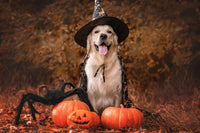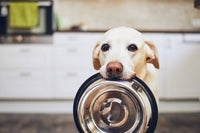Subtotal
$0.00
or
The Effects of Sleep Deprivation
Is your neighbor's dog keeping you up all night from their incessant barking? Or maybe it's your dog that likes to bark at night.
More often than not, people with pets or kids will lose some amount of sleep during the night. But what happens to you when your sleep is interrupted every night, or you just simply can't fall asleep? This can become far more serious than just feeling sluggish the next day.
It is recommended that the average adult gets at least 7 hours of sleep each night to be fully rested and functional during the day – this also helps to prevent health issues caused by lack of sleep.
It takes 4 days for your body to fully recover after losing 1 hour of sleep. Many Americans lose sleep every night, which makes it essentially impossible to recover. In America, 70% of adults report that they obtain insufficient sleep at least one night a month, and 11% report insufficient sleep every night.
(Source: sleephealth.org ) This allows sleep deprivation symptoms to set in.
In fact, when you are not sleeping at all, you can even begin to have hallucinations after about 72 hours. If this is the case you should consult your physician or a sleep specialist right away.
Sleeplessness and incorrect sleep habits don’t have to define your life – you can improve your sleep health overtime with small changes to your daily activities. Following these easy steps can drastically improve your physical and mental health. (Source: sleepfoundation.org )
Pets can also disrupt your sleep more than you might think.
Cats typically sleep 16–20 hours a day, but are nocturnal so they are far more likely to be active during the night. Puppies need about 18–19 hours of sleep, and will stay awake 1 hour per every 3 hours they sleep. Adult dogs will sleep on average 12–14 hours, with bigger dogs needing to take power naps. (Source: southbostonanimalhospital.com )
However, creating a strong nighttime routine with your pet can help ensure they are sleeping at the same time as you, and therefore cause less sleep disturbances.
If your neighbor has a noisy dog that likes to bark in the middle of the night that can be much harder to control. But there is a device that can help with this problem: The Dog Silencer® MAX. This item uses an ultrasonic sound that humans can’t hear, so there is no worry that it will disrupt you or your neighbors. The dog will learn that if they do not want to hear the sound, then they should not bark – saving you your sanity and giving you back your peace and quiet!
We believe that everyone deserves to be well rested (including pets) and we hope that this provides you with enough information so that everyone in your family can get a full night of sleep.

Why Dogs Shouldn't Eat Turkey: Many turkey dishes include stuffing or gravy — both full of dog-unfriendly ingredients like onions, raisins, and butter. Even a “small taste” can expose your pup to toxic foods or trigger digestive distress.

Announcing the Winners of Our 2025 Pawsome Costume Contest!

The holidays are right around the corner — a time filled with friends, family, and festive chaos. But if your dog barks nonstop at visitors, delivery drivers, or even the sound of wrapping paper, it can quickly turn your joyful season into a noisy one.

How to Keep Racoons, Skunks, and Squirrels Away - Without Traps or Poison

Why Dogs Shouldn't Eat Turkey: What Every Pet Owner Should Know